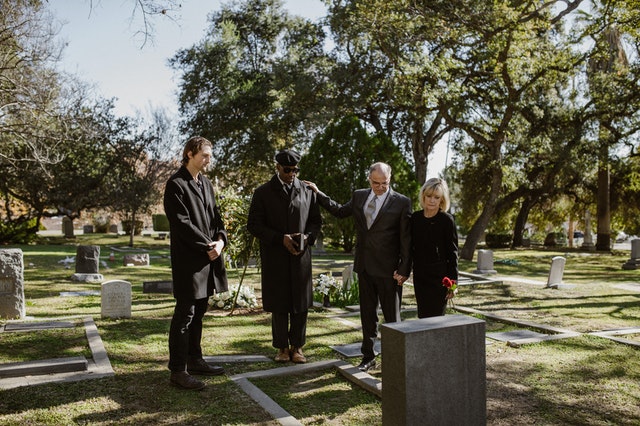The history of funerals can be traced back through the ages, as human beings have always been buried or cremated following a period of time. This period of time can be quite lengthy. We will touch upon some of the various reasons for why we have funerals, some of which have not even been recorded in history. The history of funerals can be considered to be a very interesting and often told side of human life that only those who experience them can truly understand. This is also a great way to bring family and friends closer together.
The history of death has always had some sort of ceremony associated with it. Some cultures have always bury their dead or cremate them following a period of time. This tradition dates back to ancient times when the remains were placed in mausoleums or cliff dwellings. Throughout history there have been many different types of burial practices. At one point the dead would simply be buried in the ground, some tribes would even burn the body on a pyre for their survival and others would bury the dead in their own gardens or in their own private plots.
With the coming of Christianity and society began to accept the concept of the funeral. Death became a somber event and was no longer viewed as something that had special significance. The history of funeral ceremonies can be seen throughout the ages, funeral service in Eltham where mourners would come together to remember the dead and pay their last respects. Burials were taking place throughout Europe before they were officially abolished in 14 ninety. They were never completely abolished however and funeral laws and customs did evolve. The funeral is generally seen as the final celebration of a person’s life; it marks the end of an era or signifies a sense of closure.
The history of the funeral can also be linked to other religions. Hinduism has funeral rituals that mark a transition between life and death. Egyptians, on the other hand, also have a belief system that views death as a time to leave a legacy and select an individual to carry on the family line. Although all three of these cultures view death and cremation as important parts of their belief systems, each has developed its own form of cremation. Cremation is now a fairly standard practice throughout the world, although religious traditions may still vary from one culture to the next.
The history of funeral director customs began to change when people began to see the need to store the dead. It became necessary to bury them away from the site of death, so that they would not be disturbed. The Egyptians later developed a mummification process that involved keeping the body submerged in water and then using mummification materials to place on the body, such as linen and wood. The importance of burials began to grow as people realized that their ancestors would never be able to see their loved ones again; the act of burial provided some solace.
The development of funeral rites is probably best studied in Western countries, because that is where most of the concepts and traditions surrounding the dead and funerals originally came from. The earliest examples can be found as far back as Roman times, when the wealthy would send their own bodies into the water for burial. Christianity views the dead not only as an essence but a religious icon as well, which meant that the dead person was considered to be a part of the community and could be honored and even held in high esteem.
The Catholic Church opposed cremation because of the belief that death was a painful experience. They viewed the dead body as a source of disease and infection, which was why they did not want anyone in the afterlife to have a physical body. Cremation became an acceptable solution for these people, who were then able to bury their dead ancestors. However, the Reformation brought about many changes to the funeral service Greensborough practices of the church. In addition to the rejection of cremation by the Catholic Church, there was also a rejection of the concept of an afterlife.
There are many different opinions on the history of funerals. Some people think that the development of funeral rites began after the resurrection of Jesus of Nazareth, when his followers abandoned the traditional practices of cremation in order to commemorate him. Others believe that the funeral practice started after the Egyptians, because they believed that the soul did not leave the body until it was raised from the grave. There are many theories on the history of funeral customs, but no one has been able to give a definite account.
The History of Funerals






